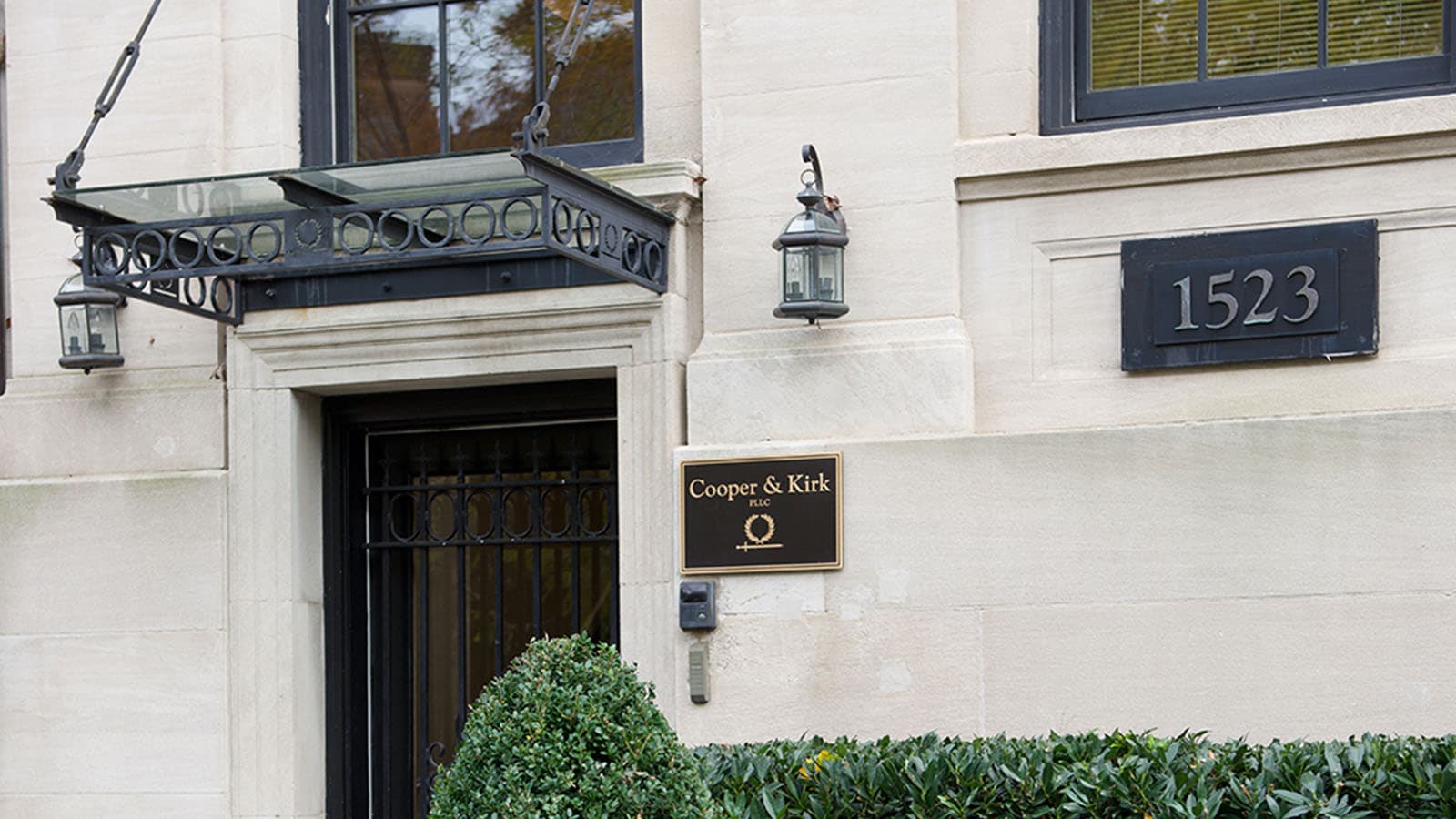US Bank Regulators Waging Secret War on Crypto Says Law Firm
Federal bank regulators are acting in an “arbitrary and capricious fashion” by failing to explain their decisions, law firm Cooper & Kirk said Monday

Source: cooperkirk.com
US federal regulators are allegedly waging a “clandestine financial war” against the crypto industry, according to Washington, D.C. law firm Cooper & Kirk PLLC.
The FDIC, the OCC and others are allegedly using “regulatory tools and pressure tactics” to limit the extent digital assets have on the financial system, the law firm said Monday in a white paper.
The law firm is calling the latest regulatory actions in the US “Operation Chokepoint 2.0.” The operation is modeled after a similar initiative under the Obama administration, which attempted to target fraudulent and high-risk industries, including the tobacco and payday lending industries.
Its white paper attempts to explain how regulators are issuing informal guidance documents that target crypto users deemed as posing a higher risk to banks. The paper raises concerns over the way in which the crypto industry has been subject to increased regulatory scrutiny in recent years.
It follows prior statements by banking regulators last month in which they pressed banks to apply existing risk management principles when it came to crypto-related transactions.
“Operation Choke Point 2.0 deprives businesses of their constitutional rights to due process in violation of the Fifth Amendment,” the firm said. “Operation Choke Point 2.0 violates both the non-delegation doctrine and the anticommandeering doctrine, depriving Americans of key structural constitutional protections against the arbitrary exercise of governmental power.”
The end result has led to industry-related firms and individuals being debanked and revoked access to the automated clearinghouse network, it said.
Cooper & Kirk said in a statement on Monday, while it was instrumental in halting the original operation 1.0 from progressing further, it would be up to Congress to hold federal banking regulators accountable.
Principal author and Cooper & Kirk attorney, David H. Thompson, said in the paper, federal bank regulators are dodging the notice and comment rule-making requirements by implementing binding measurements on the banking industry.
“Having decided that they will not permit banks that serve a broad base of customers to serve the crypto industry, the federal bank regulators are now taking steps to ensure that those banks that specialize in serving the crypto industry are unable to do business in the US,” Thompson said.
A spokesperson for the FDIC told Blockworks while it would not comment on the whitepaper, banking organizations are neither “prohibited nor discouraged from providing banking services to customers of any specific class or type, as permitted by law or regulation.”
Several banks with ties to crypto collapsed earlier this month, including Silicon Valley Bank, after facing a liquidity crisis spurred on by poor risk management.
The OCC and Kirk & Cooper law firm did not immediately respond to requests for comment.
Updated March 29, 2023 at 6:18 PM ET: adds comment from FDIC
Get the news in your inbox. Explore Blockworks newsletters:
- The Breakdown: Decoding crypto and the markets. Daily.
- 0xResearch: Alpha in your inbox. Think like an analyst.






